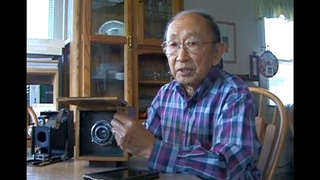Interviews
Involvement in JACL
Well, I’m living here almost 60 years. Maybe for many years, I had no contact with the JACL. As I told you, I just joined after maybe I was 60 years old. At that period, there was no place to say I’m a Japanese American, or I’m getting together with the Japanese American people like that because there’s not such kind of gathering in all of Japan. And there's no guy about my age, and there's nobody who was in a camp. There’s nobody who experienced camp. So in that sense, I’m special also... because they don’t know what camp is. Well, at least I was a kid, but I was in camp three and a half years. I was in barbed wire fence. But, people who came back to Japan before the war don’t know what camp is and how it was to be relocated or segregated—I don’t know what you call it. So even the younger JACL boys, well they say they heard something from their parents, but they really don’t know anything about it.
Date: September 11, 2003
Location: Tokyo, Japan
Interviewer: Art Nomura
Contributed by: Art Nomura, Finding Home.








